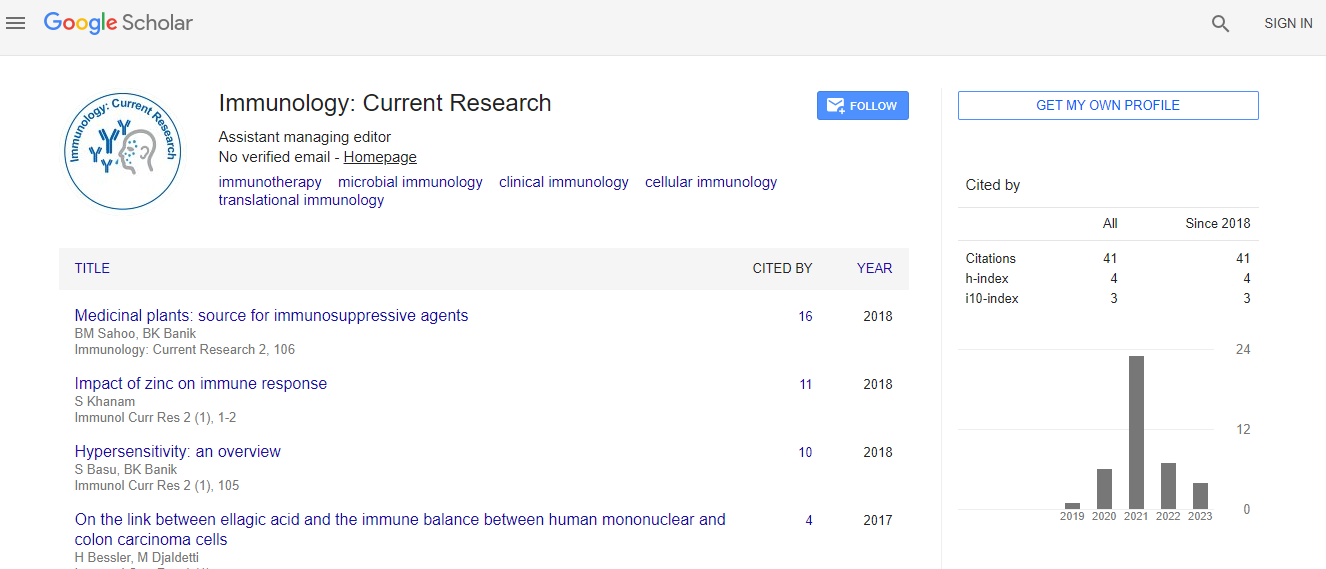Harnessing Immunomodulation: Strategies to Enhance Immune Responses in Autoimmunity and Cancer
*Corresponding Author:Received Date: Jan 01, 2025 / Accepted Date: Jan 31, 2025 / Published Date: Jan 31, 2025
Citation: Hong C (2025) Harnessing Immunomodulation: Strategies to EnhanceImmune Responses in Autoimmunity and Cancer. Immunol Curr Res, 9: 239.DOI: 10.4172/icr.1000239
Copyright: © 2025 Hong C. This is an open-access article distributed under theterms of the Creative Commons Attribution License, which permits unrestricteduse, distribution, and reproduction in any medium, provided the original author andsource are credited.
Abstract
Immunomodulation offers a promising strategy for enhancing immune responses in both autoimmune diseases and
cancer. Autoimmunity is characterized by an inappropriate immune response against self-antigens, while cancer cells
evade immune detection and destruction. Harnessing the power of the immune system to modulate these responses
has led to the development of novel therapeutic approaches, including immune checkpoint inhibitors, cytokine therapy,
and regulatory T-cell modulation. In autoimmune diseases, targeting overactive immune responses with biologics,
such as monoclonal antibodies and cytokine inhibitors, has shown success in managing conditions like rheumatoid
arthritis, lupus, and multiple sclerosis. In cancer, immune checkpoint inhibitors such as PD-1/PD-L1 and CTLA-4
blockers have revolutionized cancer treatment by reactivating the immune system to target tumor cells. The ability to
fine-tune the immune response in both contexts is a rapidly evolving area of research. This review explores current
strategies in immunomodulation, their mechanisms of action, and their implications for improving immune responses
in autoimmunity and cancer.

 Spanish
Spanish  Chinese
Chinese  Russian
Russian  German
German  French
French  Japanese
Japanese  Portuguese
Portuguese  Hindi
Hindi 
